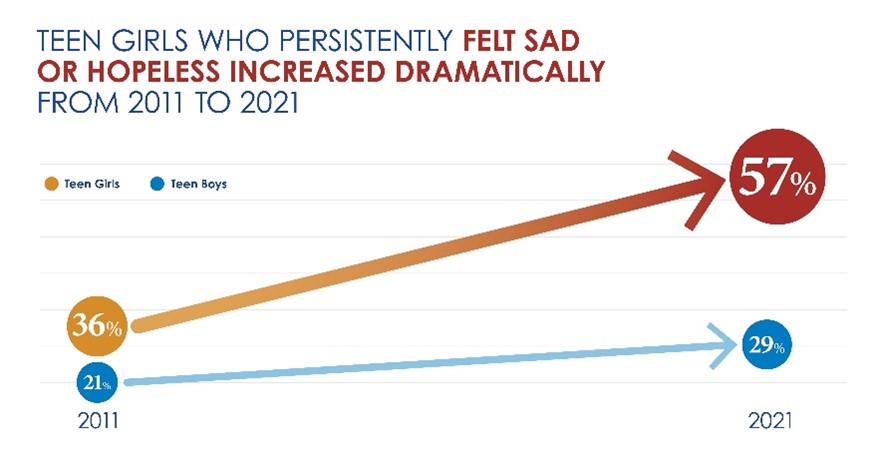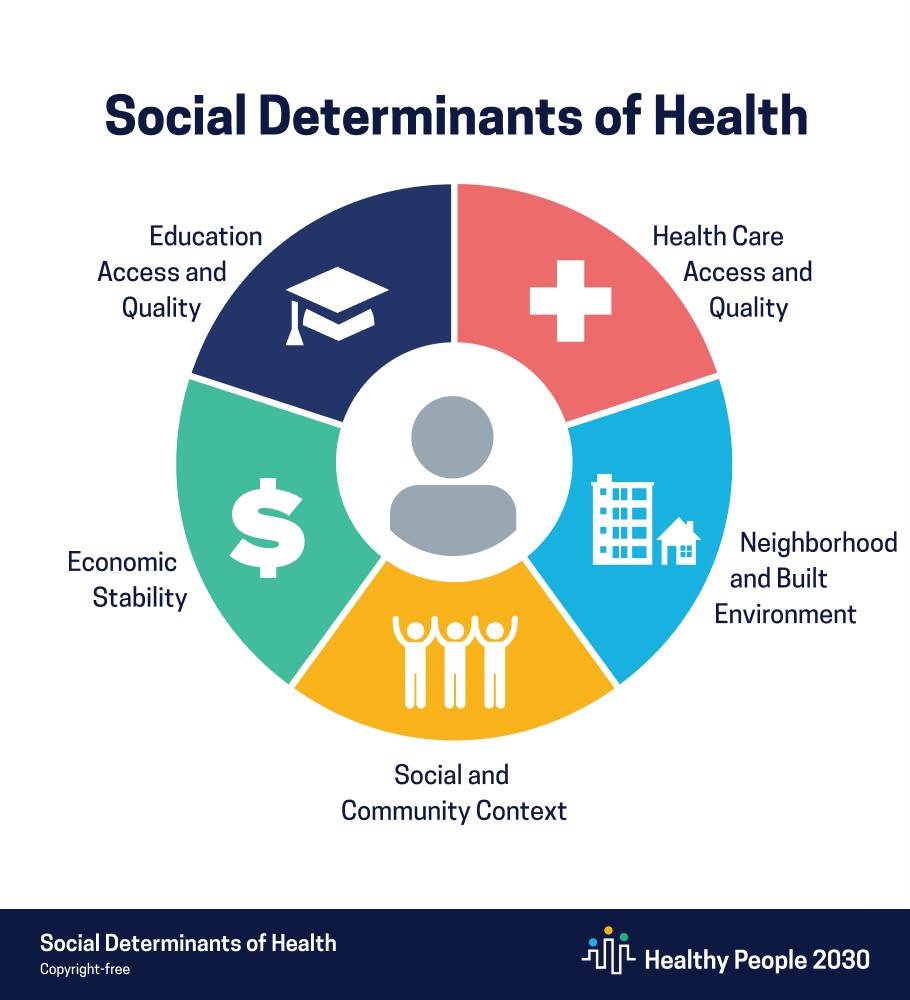Blog
Advancements in health equity — Social Determinants of Health
According to new CDC data, nearly 3 in 5 U.S. teen girls felt persistently sad or hopeless in 2021—double that of boys, representing a nearly 60 percent increase and the highest level reported over the past decade. The study attributes this radical increase to three emerging factors in young people’s environments: school connectedness, parental monitoring, and unstable housing.

The analysis includes 2021 data and trends from the Youth Risk Behavior Survey, which examines health behaviors and experiences among U.S. high school students
As a community mental healthcare provider, we are seen as subject matter experts on the first two factors, particularly considering our recent expansion into schools through the new Community-based Clinician team working with students, their caregivers, and school administrators and staff. However, C4 is committed to our mission of supporting our clients through community-level interventions that take a holistic approach and address the fullness of family and individual needs in the context of their communities and helping systems. We are not just a mental healthcare provider, but a provider of social services that address multiple aspects of individuals’ and communities’ well-being, including mental and physical health, education, and employment. This comprehensive approach leads to better outcomes and improved quality of life.
As referenced in the above CDC study, Social Determinants of Health, such as poverty, limited access to healthcare, housing instability, lack of education and employment opportunities, and exposure to violence, can contribute to the development and exacerbation of mental health conditions. In the same respect, poor mental health can lead to difficulties in accessing healthcare, educational opportunities, and employment, thereby perpetuating the cycle of disadvantage, and exacerbating existing Social Determinants of Health. Sadly, Chicago’s long historical disinvestment in communities on the south and west sides of the city, particularly Black and Brown communities, has led to social and health stressors that have had considerable impact on mental wellbeing. The interconnected nature of mental health problems and the importance of addressing both individual and societal factors in improving mental health outcomes remains at the heart of our work. It is important to address both mental health and social determinants of health in a comprehensive and integrated manner to ensure the best possible outcomes for individuals and communities.

Social determinants of health (SDOH) are the conditions in the environments where people are born, live, learn, work, play, worship, and age that affect a wide range of health, functioning, and quality-of-life outcomes and risks.
Thankfully, state policy makers and the greater community of care are beginning to understand this philosophy. As a result, C4 has made strategic enhancements to our staff, growing our community-based care coordination teams to assist our consumers in connecting to a wide variety of resources to support their wellness. Ensuring mental health equity – where all have the opportunity to live full and rich lives – means addressing these root causes, and the intersections of physical health, poverty, community safety, housing instability, racism, and mental health. It also entails reducing disparities in access to mental health care.
We are thrilled by several newer partnerships in the last year that were formed to achieve greater parity between mental and physical health. We are thankful for our partners at Lurie Children’s Hospital, Hartgrove Hospital, Humboldt Park Health, Swedish Hospital, and The Loretto Hospital for their vision in looking to create a framework that evaluates health at its sources and looks upriver for solutions to the problems they have seen most acutely firsthand for decades. Additionally, C4 wants to thank our policy makers in Illinois, our legislators, and leaders, both in the Illinois Department of Human Services and Illinois Healthcare and Family Services, who have begun to fund this work, and recognize how critical a role mental health plays in ensuring positive health outcomes and community change. C4 would like to thank the Chicago Department of Public Health for understanding these mechanisms of community change and for their systems coordination and collaboration in intentional ways at a neighborhood level.
To other social service providers, social workers, and helpers, this is a call to join us in our commitment to a more equitable and healthier city. We are currently in the process of planning our own internal trainings for our staff around Social Determinants of Health and their impact on mental health and would be happy to invite you. If there are ways in which we can collaborate in any way, please let us know. By working together, we can work towards a future where all have equal opportunities to live full and healthy lives. For individuals and families, know that if you do need support, we are here. Trauma can happen to anyone, and asking for help is incredibly brave. We promise to see you fully, without judgement.
Let us all work together, state policy makers and administrators, insurance providers, hospital systems, social service providers, and residents of Chicago, to break the cycles of shame and pain, for a better world is yet to come.



